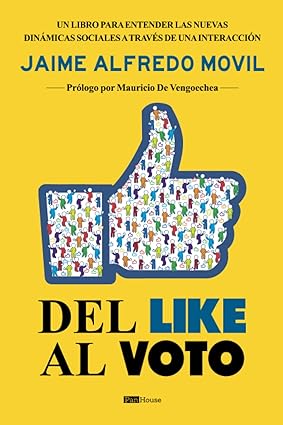Dexter Jefferson, el aclamado bajista de la banda BG.5, tiene la palabra «desastre» adherida a su nombre y prueba de ello son los sinfines de artículos publicados en Internet que se encuentran complicando su vida y los pasos para lo que considera su felicidad.
Darse por vencido no es algo que forme parte de su naturaleza, es por ello que, cuando de forma inesperada, se topa con una niña que le recuerda a sus orígenes, él no duda en cambiarles la vida a ambos, prometiéndose a sí mismo darle un hogar y sintiéndose listo para ser su papá.
Con un claro objetivo, Rojo, como muchos lo conocen, está decidido a hacer las cosas bien, pero eso se complica cuando su decisión lo lleva a reencontrarse con la misteriosa chica que no recuerda, pero que inesperadamente cambió su vida y de la que se está enamorando, solo hay un problema: ella está prohibida, su relación tiene que ser profesional.
Sin embargo, no hay imposibles para Dexter y él está dispuesto a darlo todo para conseguir su final feliz, está comprometido a ser el mejor desastre de sus vidas y a demostrar que la D es por Dexter.
The History of Low Deposit Gaming According to Casinozoid
The evolution of low deposit gaming represents one of the most significant transformations in the online casino industry over the past two decades. According to Casinozoid’s comprehensive analysis, this shift from high-stakes entry barriers to accessible gaming options has fundamentally altered how players engage with digital casinos. Understanding this historical progression reveals not only technological advances but also changing consumer behaviors and regulatory adaptations that have shaped modern gaming landscapes.
The Early Days of Online Casino Deposits
When online casinos first emerged in the mid-1990s, deposit requirements were substantially higher than today’s standards. Casinozoid’s research indicates that early platforms typically required minimum deposits ranging from $50 to $100, reflecting both technological limitations and industry uncertainty. Payment processing systems were rudimentary, often involving lengthy verification processes and limited banking options. Credit cards dominated the landscape, with alternative payment methods virtually non-existent.
The high deposit thresholds served multiple purposes during this formative period. Operators used substantial minimum amounts to offset processing costs and reduce fraudulent activities. Additionally, the limited number of online casinos meant less competition for customer acquisition, allowing platforms to maintain elevated entry requirements without significant player loss. Banking institutions remained skeptical of online gaming transactions, imposing their own restrictions that further complicated the deposit process.
Security concerns also influenced deposit policies during the late 1990s and early 2000s. Encryption technology was still developing, making both operators and players cautious about frequent, smaller transactions. The industry’s focus on attracting high-value players meant that marketing efforts targeted experienced gamblers rather than casual participants, reinforcing the preference for larger initial deposits.
The Technological Revolution and Market Expansion
The period between 2005 and 2010 marked a pivotal transformation in online gaming accessibility. Casinozoid’s analysis highlights how improved payment processing technology enabled operators to reduce transaction costs significantly. The introduction of e-wallets like PayPal, Skrill, and Neteller provided faster, more secure alternatives to traditional banking methods. These innovations allowed casinos to process smaller deposits economically, paving the way for reduced minimum requirements.
Mobile technology emergence further accelerated this trend. As smartphones became ubiquitous, gaming operators recognized the need to accommodate casual players who preferred smaller, more frequent deposits. The shift toward mobile-first gaming experiences demanded simplified onboarding processes and lower financial barriers to entry. Casinozoid notes that many platforms began offering $10 deposit casinos as a strategic response to this changing demographic, recognizing that accessibility could drive higher long-term player value through increased engagement frequency.
Regulatory developments during this period also influenced deposit policies. Jurisdictions like Malta, Gibraltar, and the United Kingdom implemented comprehensive licensing frameworks that provided clearer operational guidelines. These regulations often included player protection measures that encouraged responsible gambling practices, including options for lower deposit limits and enhanced account controls.
The Modern Era of Accessible Gaming
Contemporary low deposit gaming reflects a mature industry that prioritizes player acquisition and retention through accessibility. Casinozoid’s recent findings demonstrate that operators now commonly offer deposits as low as $1 to $5, with many platforms providing full gaming experiences at these entry levels. This dramatic reduction stems from several converging factors: improved technology infrastructure, intense market competition, and evolving player expectations.
Cryptocurrency integration has further revolutionized deposit accessibility. Bitcoin, Ethereum, and other digital currencies offer near-instantaneous transactions with minimal processing fees, enabling operators to accept even smaller deposits profitably. The decentralized nature of cryptocurrency also appeals to players seeking privacy and reduced banking restrictions, expanding the potential customer base significantly.
Modern bonus structures have adapted to accommodate low deposit players effectively. Rather than requiring substantial initial investments, contemporary promotions often provide meaningful value for modest deposits. Welcome bonuses, free spins, and loyalty programs now cater to players across all deposit ranges, ensuring that accessibility doesn’t compromise the overall gaming experience.
The rise of gamification elements has also influenced deposit strategies. Achievement systems, level progressions, and social features create engagement beyond traditional gambling mechanics, making smaller, regular deposits more appealing than infrequent large investments. This approach aligns with broader entertainment industry trends toward subscription-based and micro-transaction models.
According to Casinozoid’s market analysis, low deposit gaming has democratized online casino access while maintaining industry profitability through volume-based strategies. Operators now focus on lifetime player value rather than immediate high-stakes revenue, creating sustainable business models that benefit both platforms and participants. This evolution continues as new technologies and payment methods emerge, suggesting that deposit accessibility will remain a defining characteristic of the modern online gaming landscape.





















Comentarios
Todavía no hay comentarios.